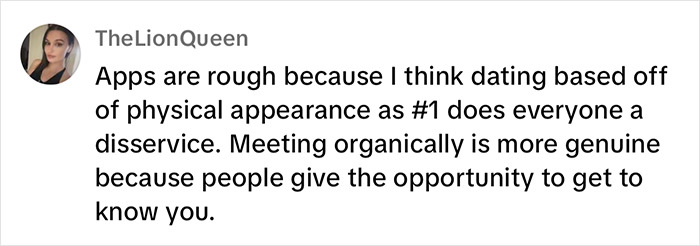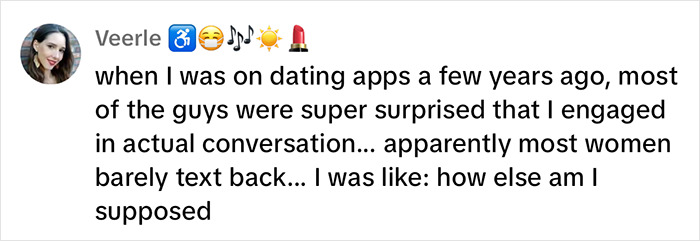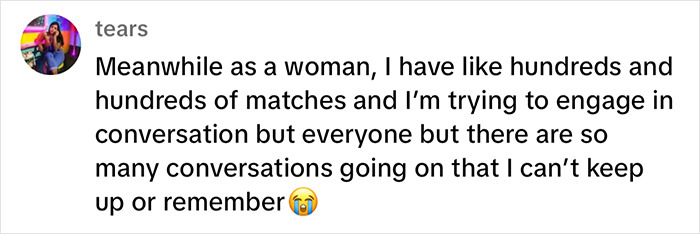How does it feel to be a man in today’s dating landscape? A woman’s journey to answer this question led her to uncover a depressing reality, with her self-esteem taking a severe hit as soon as she took over a male friend’s profile.
“It’s so difficult dating as a boy,” she said on TikTok. “I feel like a freaking loser. I hate women and I’m more depressed than ever.”
Her experiment soon went viral, offering a window into the difficulties men have on dating platforms. Despite confidently taking over her male friend’s Hinge profile to find him a date, the woman found herself defeated and depressed in just three days.
“If you’re losing it after just three days, imagine 30 years,” one of her viewers replied.
Dating apps have revolutionized how people connect with potential partners, however, with ease of access came an unexpected, growing sense of isolation that has affected men the most.
Recent research into their mental health has revealed staggering statistics, with around 40% of modern men confessing to have struggled with self-harm thoughts in recent weeks due to difficulties finding social circles to belong, and partners to connect with.
A woman took over her male friend’s dating app profile only to find herself “more depressed than ever,” and “hating women” just three days afterwards

The viral video shared by the TikToker, Joanna, provided an inside look at the emotional challenges men face while dating in the modern world. Despite her friend, called Pete, being reasonably attractive, she found that many women ignored or rejected his profile, even after she made an effort to engage and be courteous.
Joanna’s experience reflects a small aspect of a bigger issue, as dating apps provide a limited platform for socialization, where only the most superficial aspects of a person are highlighted. Men, who often attract partners via their social skills and status, are often sidelined if they don’t fall into the top percentage of physical attractiveness.
For instance, according to official stats provided by Tinder, the bottom 80% of men on the platform compete for the bottom 22% of women, with the opposite being true for females.
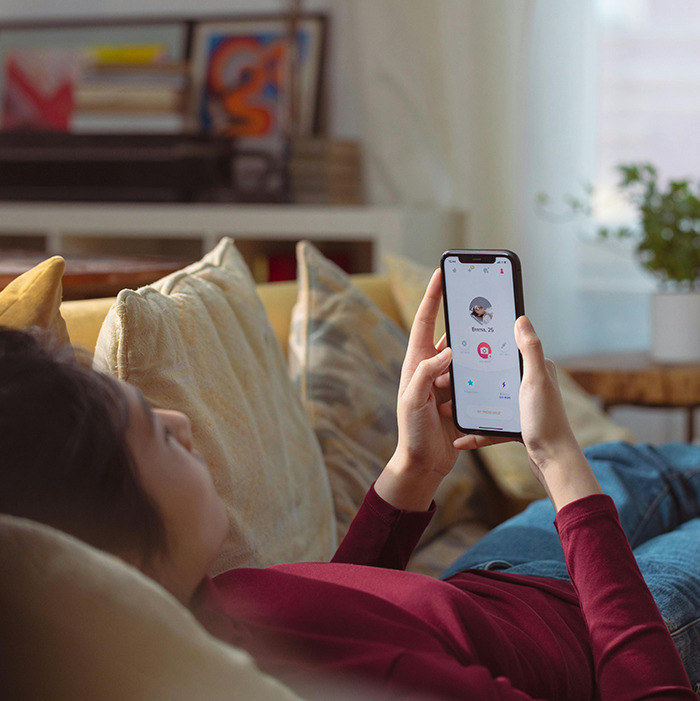
Rubbing salt into the wound, the app revealed that men of average attractiveness would be “liked” by approximately 0.87% of women. This means that out of 115 female users, only 1 would swipe right.
Instead of making things easier for users, dating apps have made it harder for couples who would’ve otherwise started dating to find each other attractive, by isolating the interaction away from social circles and communities.
Joanna’s experience was just a small taste of what dating on the internet is like for millions of men around the world, with 80% of them being virtually invisible as per official stats

This sense of isolation has gone beyond just the dating world, affecting people’s abilities to form bonds in other areas of their lives. Men specifically, have experienced an enormous erosion of spaces vital to their well-being.
According to a 2023 report titled State of American Men by research group Equimundo, men are now more socially disconnected and pessimistic about the future than ever.
The paper interviewed more than 2,000 men from ages 18 to 45 across the United States, finding that more than 40% of them showed depressive symptoms, having suicidal thoughts that increased in frequency and intensity the younger the man was.
65% of them also said they felt “no one knew them well,” and had very little optimism for the future and low levels of social support.
To better understand the implications of such harsh statistics, Bored Panda spoke with members of Equimundo, who delved into the root causes of the phenomenon, as well as which measures to take to move towards a healthier society.
According to experts the problem stems from a decrease in physical socialization in modern society, with many avenues for interaction being replaced by the internet

“There has been a decline in face-to-face socialization for many young men,” said Caroline Hayes, Senior Strategic Initiatives Officer at Equimundo.
“The amount of time they’re spending online contributes to growing isolation from in-person engagements,” she adds, explaining that when it comes to isolation, it’s not a reduction in the number of communities or interactions that’s at fault, but the quality of said interactions.

The same 2023 report stated that 76% of men found that the internet allowed them to connect with like-minded people they wouldn’t meet otherwise. But it warned that these communities fail to offer the camaraderie and sense of belonging that “real-life” experiences provide.
The paper goes on to reveal that 30% of young men reported not spending time with anyone outside their household in the past week, managing their needs via food delivery systems, and online interactions with remote coworkers and internet communities.
This growing physical isolation stunts their emotional development, leading to an inability to form and, most importantly, handle genuine, lasting connections.
Societal expectations of men’s behavior, coupled with a tendency to ignore their mental health struggles contributes to the problem

According to Hayes, the loneliness promoted by internet interactions only added to an existing problem in the way society handles men’s mental health.
“There’s a lack of a nuanced analysis when it comes to the root causes of how mental health issues affect men distinctly,” she said.
For Hayes, the problem is two-fold, combining both societal expectations of what masculinity should behave like and a tendency to overlook their mental health struggles. This traps men in a vicious cycle of being ignored, and told to toughen up at the same time.
As a result, these “extreme masculine ideals requiring self-sufficiency and toughness can inhibit men from reaching out to others for support, whether in a clinical or social sense,” Hayes explained.
The ground upon which these ideals were built has slowly been eroded, with Equimundo pointing to a variety of socioeconomic factors adding to the pressures men face when looking for a partner.
A decline in the economic outlook of younger men has also impacted their sense of self-worth, and their ability to be providers
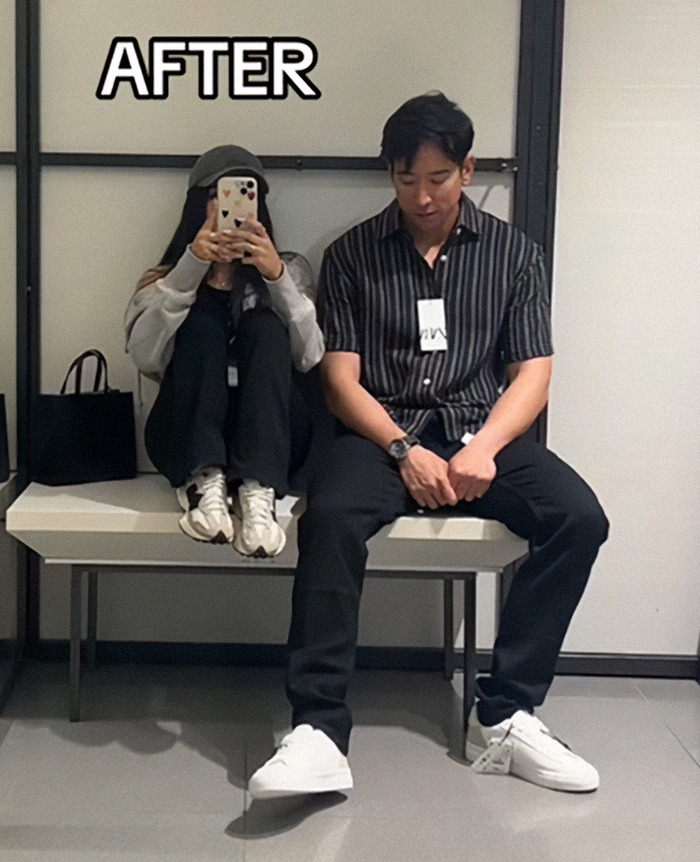
“Changes in the labor market, economic precarity, and the decline of many male-dominated industries have contributed to a sense of insecurity,” Hayes added.
Men, who have been traditionally expected to be the main breadwinners of their household, have faced increased difficulties establishing financial stability, which leads them feeling undesirable for a woman looking for a serious relationship.
“The prospect of settling into a committed relationship without financial security can be daunting,” she said.
Online dating exacerbates this issue as well, as Tinder data revealed that men showcasing a financial status higher than that of the interested female received over 250% more attention than those of a similar, or lower economic status.

In summary, online dating’s focus on fast, superficial interactions, magnifies the issues faced by men in modern society.
Much in the same way that girls’ self-esteem has plummeted thanks to the constant exposure to doctored videos and photos of models who’ve undergone plastic surgery and other enhancements. Men’s self-worth has also taken a hit, with online dating warping their perception and reinforcing unrealistic standards.
Despite the concerning results of their research, experts at Equimundo remain hopeful as newer generations report an increased interest in physical activities
@ok.jo.anna What the hell mannnnn #fyppppppppppppppppppppppp #fyp #foryoupage #foryou #fypシ゚viral #hinge #dating #datingapps #relationship ♬ original sound – Jo
For Hayes and her team at Equimundo the answer is clear: Ditch the apps.
“Dating apps shouldn’t be the only option for people looking for genuine and long-lasting connections,” she stated, advocating going back to spaces where people can meet organically, forming communities that go above and beyond just dating.
Spaces such as music classes, dance classes, sports, art, and other interests are excellent avenues to meet people, not only those of the opposite sex, but individuals than men can form rich and fulfilling relationships with.
Despite the grim picture her paper revealed, Hayes remained positive about the direction society is heading towards.
A greater understanding of the particular aspects of men’s mental health, coupled with the younger generation’s interest in physical activities, could be the solution to the issue.
“I’m hopeful about how the broader conversation has developed to address this, including recognizing the importance of third spaces and the growing opportunities young people are taking advantage of to meet others,” Hayes added.
“Welcome to our world.” Male viewers emphasized with Joanna’s struggle, sharing their own stories of dating on the internet
